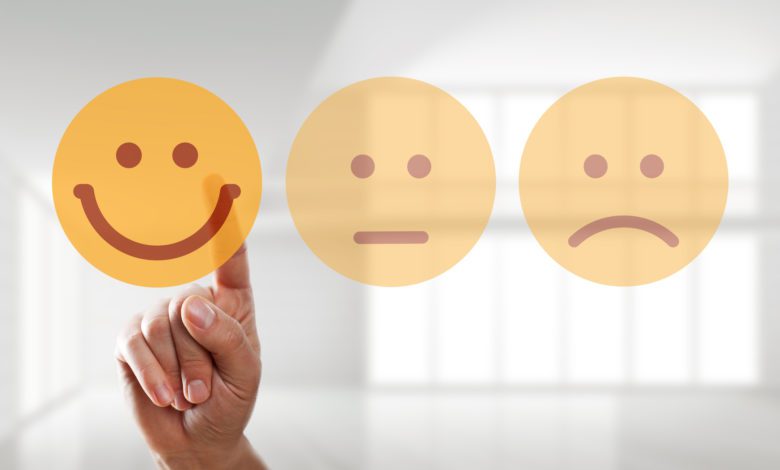
Recently, I began listening to the audible of Atlas of the Heart by Dr. Brené Brown. If you’re unfamiliar with Dr. Brown, she’s a researcher (having spent the past two decades studying courage, vulnerability, shame, and empathy), a professor at the University of Houston, and a podcast host and TED speaker. She’s also the author of six #1 New York Times best sellers. I enjoyed her previous book, Dare to Lead, and was curious to learn more about how exploring emotions can affect our work performance and how we show up at our jobs.
Kicking off, Dr. Brown explained that linguistic relativity, a hypothesis of language, suggests that the language a person speaks affects their cognition. Stated more simply, we can only understand concepts for which we have the vocabulary. “The limits of my language mean the limits of my world,” as summarized by Austrian philosopher Ludwig Wittgenstein.
While it can be debated how much truth there is to this theory, it makes sense in terms of our emotions. It’s critical to be able to articulate emotions to help us understand what we’re experiencing. And while, according to Dr. Brown, many people struggle to espouse their feelings beyond happy, sad, or mad, her latest book discusses 87 unique emotions as identified by a panel of therapists.
To see why this is, let’s look at just a few examples of emotions that we can regularly bump into in our professional lives — whether these manifest in ourselves or others — and how Dr. Brown defines them:
Perfectionism
Perfectionism is not, as it first may appear, about striving to be our best. It is about how others see us, and our fear of what they will think. Perfectionism is a barrier. Perfectionism is an external compulsion we react to as we desire to look good in front of others. Dr. Brown describes perfectionism as a “self-destructive and addictive belief system” centered around the idea that we can avoid or minimize feelings like shame, judgment and blame by being or appearing perfect.
On the other hand, mastery is achieved with curiosity when you enjoy and desire to know more about a topic. We must be ready to make mistakes and learn from them to improve.
Shame
Shame is universal. We don’t want to talk about it, and it has more control over us the less we talk about it. Shame tells us we are inadequate. Getting through shame requires us to show ourselves compassion and kindness, but it also means that we need to talk to others about what we’re feeling. Shame is a social emotion, and healing from it requires us to feel the empathy of others — something we can’t receive if we don’t talk about it with others we trust. Dr. Brown has identified four standard practices employed by those who can successfully manage shame:
- Recognizing shame and understanding its triggers
- Practicing critical awareness
- Reaching out, sharing and connecting with others
- Speaking about your shame
Stress
Stress can be when the environment you’re in isn’t one you’re used to and things are unpredictable. The situation feels unpredictable, uncontrollable, and we feel overloaded. In stressful situations, your body responds by increasing your heart rate and producing cortisol. Chronic stress harms our health in many ways, potentially causing us to age faster, develop a weakened immune system, have a greater inflammatory process, disturbed sleep cycle, and have poor health behaviors.
Jon Kabat-Zinn, a professor of medicine and thought leader in the field of mindfulness, suggests that we must engage in “non-doing time” to free ourselves from overwhelm. This gives the mind and body a chance to catch up, and recover since we simply cannot process information accurately when feeling too stressed. There is no chance of rationalizing our way out of it if we are physically and emotionally incapable of being rational.
After reading those definitions, am I the only one who feels wholly called out?? I can’t even count the times I’ve hidden behind perfectionism in some pathetic attempt to hide from shame and stress. I definitely didn’t want to explore my emotions in the past, because then I’d have to face them and the real issues that created those feelings. Instead, I avoided thinking about what I was experiencing and instead came up with superficial solutions (“Maybe another Mountain Dew and M&M’s will give me some extra boost, and I’ll forge forward”) to reduce the pain temporarily.
My main takeaway from this book is that, in general, people do not have a rich emotional language. This is truly unfortunate because a rich emotional vocabulary is essential for better decision-making and connecting to yourself and others. Sure, it’s possible to find a quick fix that will make you feel temporarily better in the moment. But it’s helpful to dig a little deeper and apply our analytical lenses to our internal selves to find more sustainable solutions, and live a happier, more holistic life.







This article describes me!